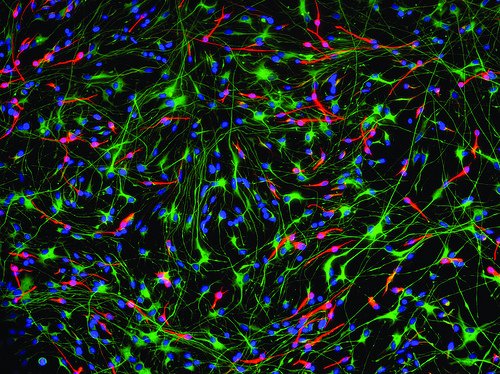The Penridge Suite, 470 Bowes Road, London, N11 1NL, United Kingdom: 6th May 2011
This event is discussion workshop. We have invited 6 experts to discuss their work in an informal lecture setting, discussion and demonstration groups, one2one sessions and panel discussions
Meeting Chair: Dr Glyn Stacey, UK Stem Cell Bank, Division of Cell Biology and Imaging.
This event has CPD accreditation
On registration please submit your questions to the panel that will be asked by the chair on the day of the event
9:00 – 9:30 Registration
9:30 – 9:45 Introduction by the Chair: Dr Glyn Stacey, UK Stem Cell Bank, Division of Cell Biology and Imaging
Talks by Invited Experts:
9:45 – 10:00 Cardiomyocytes from Human Pluripotent Stem Cells
Associate Professor & Reader in Stem Cell Biology
University of Nottingham, UK
The ability to maintain human pluripotent stem cells (hPSCs) for extended periods of time in culture and yet induce their differentiation to a wide range of cell types offers new opportunities in biomedicine. We will discuss our progress in producing human induced pluripotent stem cells from patients with genetic heart disease and our efforts to model disease using in vitro derived hPSC-cardiomyocytes, including in drug evaluation. We will also consider issues of scale up and defined culture / differentiation.
10:00 – 10:15 Differentiation of HESC/iPS
Dr Nadire Ali
NHLI, Imperial College London, UK
10:15 – 10:30 Characterisation of Human Pluripotent Stem Cells
Research Associate
Centre for Stem Cell Biology Sheffield, UK
Characterisation of pluripotent stem cells is critical if reliable cell lines are to be created for drug screening and therapeutic uses. This talk will describe the characterisation of human embryonic stem cells that has been carried out by the International Stem Cells Initiative at the level of gene expression, imprinting, methylation, karyotype and copy number variation. Attention will be drawn to key properties that mark bone fide human ES cells
10:30 – 10:45 Principles of Cryopreservation
Dr Charlie Hunt
Operations Manger
Uk Stem Cell Bank, National Institute for Biological Standards and Control
An essential pre-requisite to the commercial and clinical application of stem cells are suitable and effective protocols for cryopreservation and long-term storage. Whilst effective methods for cryopreservation have been developed for haematopoietic and mesenchymal stem cells, embryonic and iPS cells have proved more refractory. Effective cryopreservation requires an understanding of the basic physical principles that underly the freeze/thaw process and the cells response to the imposition of such a process. Basic principles and their application to stem cells will be discussed.
10:45 – 11:00 Defined Media
Stem Cell Sciences
11:00 – 11:15 Cell Adhesion and stem cell growth and differentiation
Expert TBC
11:15 – 11:20 Participant Photo
11:20 – 11:45 Mid-morning Break
11:45 – 12:45 Question and Answer Session
12:45 Working Lunch (in Exhibition Area)
13:00 – 16:30 Discussion Groups and One to One Sessions
- Round table discussion groups will be throughout the afternoon
- Delegates will rotate at 15 minute intervals so that they may participate in all the discussion tables
- All delegates will also be allocated an slot to visit the exhibition stands
- One to one sessions can also be held after lunch (in parallel to the discussion groups)
- Where appropriate delegates will be able to bring their samples to the discussions
Table 1: Sourcing stem cell lines: Points to consider
Hosted by Glyn Stacey
Table 2: Culture and Differentiation of Human Pluripotent Stem Cells
Hosted by Chris Denning, PhD in Cancer Gene Therapy at Beatson Institute for Cancer Research, University of Glasgow, 1997; Postdoctoral Research Fellow - gene targeting in mouse ES cells, Institute for Stem Cell Research, University of Edinburgh, 1997-1998; Postdoctoral Research Fellow - gene targeting in somatic cells; first targeted gene disruption in animals other than mouse, Roslin Institute 1998-2001; Principal Investigator, University of Nottingham, 2001-2003; Medical Research Council Fellow in Stem Cell Biology, University of Nottingham, 2003-2006; Lecturer in Stem Cell Biology, University of Nottingham, 2006-2008; Associate Professor & Reader in Stem Cell Biology, University of Nottingham 2008-
Table 3: Differentiation of HESC/iPS
Hosted by Nadire Ali
Table 4: Characterisation of Human Pluripotent Stem Cells
Hosted by Dr Paul Gokhale, PhD , Tumour Cell Biology, 1999. Postdoctoral researcher with Prof. PW Andrews, University of Sheffield (1999-2005). International Stem Cell Initiative (2005-present). ISCI-1(2005-2008): Characterisation of Human embryonic stem cells and ISCI-2(2008-2011): Identification of common genetic changes in Human embryonic stem cells.
Table 5: Problems in Cryopreservation of Stem Cells
Hosted by Dr Charlie Hunt, whose background has been in the fields of cryobiology and tissue banking. In 1978, he joined the MRC Medical Cryobiology Group at the University of Cambridge where his research involved the cryopreservation of cornea, pancreatic islets, and arteries. .In 1992, he and colleagues founded the East Anglia Tissue Bank; where he was responsible for the heart valve and autologous stem cell banking programs and developing skin and amniotic membrane banking. In 2003, he took charge of the newly founded UK Stem Cell Bank at the National Institute for Biological Standards and Control, where he is currently the Operations Manager.
Table 6: Defined Media
Hosted by Mr Paul Bello
Table 7: Cell Adhesion and Stem Cell Growth and Differentiation
16:30 – 17:00 Expert Panel’s Summing Up
17:00 Chairman’s Summing Up
Key words:
automation, human pluripotent stem cells, disease modelling, cardiomyocytes, genetic modification, hES cells, iPS cells, freezing, vitrification, cryopreservation
Connect with us on
Nature network - http://network.nature.com/groups/euroscicon/
- http://www.linkedin.com/groups?gid=1939569
- http://www.facebook.com/group.php?gid=70847076549
- http://twitter.com/Euroscicon/
Sponsors
Dont forget to sign up to Euroscicions e-newsletter at www.euroscicon.com/signup.htm to keep up to date with European Life Science news and events and to be notified of the follow up to this event
This meeting was organised by Euroscicon (www.euroscicon.com), a team of dedicated professionals working for the continuous improvement of technical knowledge transfer to all scientists. Euroscicon believe that they can make a positive difference to the quality of science by providing cutting edge information on new technological advancements to the scientific community. This is provided via our exceptional services to individual scientists, research institutions and industry.
Meeting Web Site: http://www.regonline.co.uk/WORKSHOPStem2011
Post expires at 8:24am on Friday May 6th, 2011




















